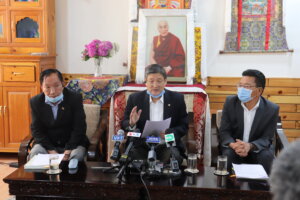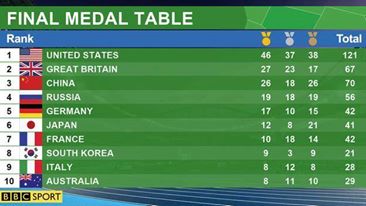Justices of TSJC accept Tibetan parliament’s impeachment but refute the charges

DHARAMSALA, 26 March: The Chief Justice Commissioner and the two Justice Commissioners of the Tibetan Supreme Justice Commission (TSJC) said that “no one is above the law” and that they did nothing against the Charter of Tibetans in exile today to refute the resolution passed by the Tibetan Parliament-in-Exile (TPIE) to impeach them on Thursday.
While the TPIE has declared that Dagpo Sonam Norbu, the Chief Justice Commissioner and the Justice Commissioners, Tenzin Lungtok and Karma Dadul of the TSJC were impeached in accordance with the Clause (IV), Article (63) of the Charter of Tibetans in exile, the trio said at a press conference that though they accept that the parliament does have the power to impeach them from office, the provisions cited by the Parliament relates to their term limits.
Carrying forward the procedure of the impeachment without any legal basis is not just unlawful; it amounts to malpractice that poses a threat of fragmenting the Central Tibetan Administration in the future, the trio stated in their statement.
Three judges of the exile Tibetans apex court further said that though Article 58 states that any manner of the proceedings of the Tibetan Assembly shall not be called into question by any Tibetan Justice Commissioner under the pretext of any alleged irregularity or discrepancy with the regulations, how the standing committee of the Tibetan parliament tabled the resolution and the procedure thereafter including how the vote was conducted was against the chapter 12 and 13 of the rules governing the house the parliament should function.
Clause (IV), Article (63) of the Charter of Tibetans in exile states that unless a resolution is passed demanding the removal of the Chief Tibetan Justice Commissioner, the two Justice Commissioners or any of them by more than two-thirds of the total members of the Tibetan Parliament, the Chief Tibetan Justice Commissioner shall continue to discharge his or her duties until the completion of five years term or the age of 65 whichever comes first and the two Justice Commissioners until the age of 65.
Though the three judges of the exile Tibetans apex court said that they accept the parliament’s decision to remove them from their office, they made it clear that they are not guilty of any wrongdoing and concluded by stating that that the parliament “should take the historical responsibility for it.”
On initiating the suo moto cognisance against the 11 standing committee members of the decision to postpone the session of the house that became a major clash point between the TSJC and the former, the trio held that if the judiciary doesn’t take suo moto cognisance, then who will safeguard the fundamental rights, legal rights, and social justice of the Tibetan people.
Though the Tibetan parliament is at fault for not following through with proper procedures to introduce and vote on the resolution for our removal, we are vacating our offices solely out of respect for the constitution, the trio said.
“We are leaving as we uphold the constitution despite the parliament’s failure to properly follow through the procedures, but this sets a dangerous precedent,” they warned in their parting shot.
On 17 Aug. 2020, Pema Jungney, the speaker of the TPIE flanked by Deputy Speaker Acharya Yeshi Phuntsok and Secretary-General Tsewang Ngodup on both sides announced that “the 10th session of the 16th TPIE scheduled to be held for 8 days from 16-24 September 2020 has been postponed until March 2021.”
The supreme legislative body of the exiled Tibetans stated the decision was “taken at the 327th Standing Committee meeting on 13 August 2020, in accordance with the Article 6 and clause 2 of Article 49 of the Charter of Tibetans in exile.”
Article 6 the Charter of Tibetans in exile states that all laws, ordinances, regulations, administrative and executive orders of the Tibetan Administration-in-Exile shall conform to the generally accepted principles of international law and in particular comply with the local laws of the host countries while and clause 2 of Article 49 states that if a session of the parliament is required to be adjourned by more than a week in the absence of the minimum quorum required, the Speaker may adjourn the meeting.
Responding to the TSJC’s notice, the Standing Committee of the TPIE then sent a four-page explanation to the court stating that the committee has not done anything unlawful.
On 25th Sept, the TSJC declared in its ruling that the 11 members of the standing committee of the TPIE did not uphold Article 40 of the Charter of Tibetans in exile as they failed to hold the parliamentary session as it found the reasons for postponing the 10th session of the parliament insufficient.
Article 40 of the Charter of Tibetans in exile states that “a time period of six months shall not pass between the last session and the date appointed for the next session.”
The TSJC then withheld the voting rights of the members of the Parliament’s standing committee of the TPIE until 21 March 2021.
The TSJC’s order was rejected by the TPIE on the same day. The Statement issued by the parliament declared it unconstitutional and that the TSJC has no jurisdiction over the house.
Article 6 the Charter of Tibetans in exile states that all laws, ordinances, regulations, administrative and executive orders of the Tibetan Administration-in-Exile shall conform to the generally accepted principles of international law and in particular comply with the local laws of the host countries while and clause 2 of Article 49 states that if a session of the parliament is required to be adjourned by more than a week in the absence of the minimum quorum required, the Speaker may adjourn the meeting.






